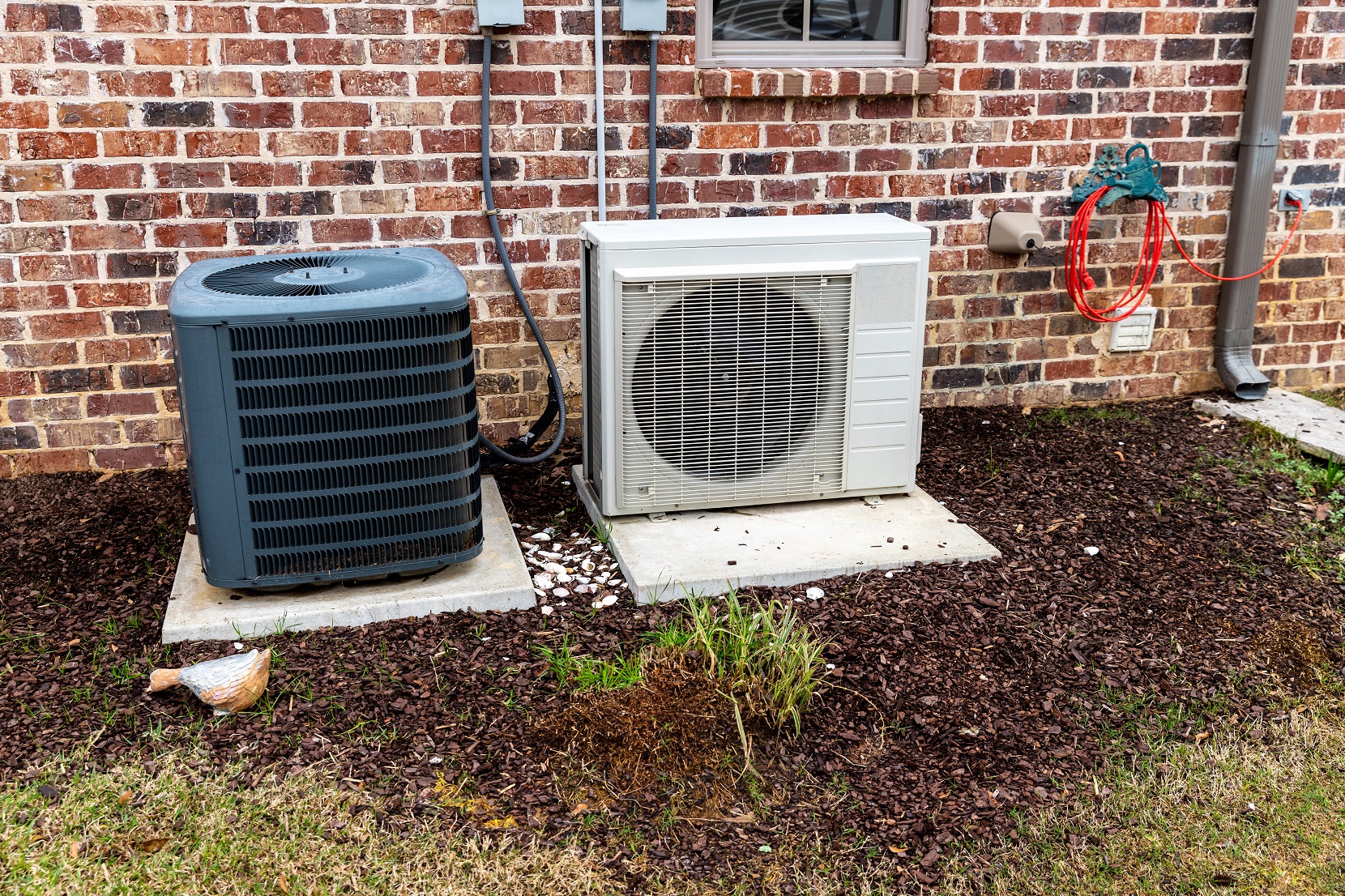Are you considering which HVAC system would work best for your home? Although heat pumps are functionally the same as conventional air conditioners, there are a few differences to keep in mind when it comes to price, longevity, and energy usage.
In this article, we will give you an overview of the four biggest differences between air conditioners and heat pumps.
Heat Pumps vs Air Conditioners: 4 Key Differences
Heating Your Home
When it comes to cooling, both heat pumps and air conditioners do an excellent job. However, when wanting to heat your home, heat pumps may be the better option. Heat pumps have a reversing valve in the outdoor unit which enables them to absorb and transfer heat energy from outside your home.
This can even be done in cold temperatures. However, heating efficiency may drop during freezing temperatures. To help with this, you can also pair your heat pump with a furnace or an auxiliary electric heater.
In contrast, air conditioners on their own are simply efficient cooling systems. But, when paired with a furnace, they can also provide heat during chillier months of the year.
Purchase and Installation Costs
A heat pump’s indoor unit is typically more affordable compared to an air conditioner’s indoor unit. However, the opposite is true with regards to the heat pump’s outdoor unit.
Depending on the efficiency level of your heat pump, the total cost can range between $5,000 to $9,000. Annual maintenance costs usually range from around $200 to $300.
In contrast, the total cost of an air conditioning unit is a bit lower compared to a heat pump. You can expect to pay anywhere between $4,000 to $8,000. Annual maintenance costs are about the same compared to a heat pump and will total roughly $300.
Longevity
Another important factor to consider before purchasing an HVAC system is the lifespan of both a heat pump and an air conditioner. It’s safe to say that there are numerous variables that can greatly influence the life expectancy of any HVAC system. However, AC units tend to last longer than heat pumps.
One of the main reasons that heat pumps tend to break down sooner is that they are used year-round. Seeing that they can both heat and cool your home, they can always be set to the exact temperature that you prefer.
On the other hand, AC units aren’t really used during cooler months. Seeing as many AC units aren’t fitted with a furnace, a separate heat source is normally used to heat the home.
Of course, you can extend the life expectancy of both your AC unit or heat pump by ensuring that you get an HVAC expert to regularly service your system. This will also ensure maximum energy efficiency all year round.
Energy Efficiency
When it comes to the energy efficiency of HVAC units, more than one factor is usually at play. During moderately cold temperatures, heat pumps are considered energy efficient when using only electricity. Compared to other systems that run on more expensive heating fuel sources like oil, propane, or gas, they are definitely more affordable to operate.
However, if temperatures drop to below freezing point, heat pumps will require more energy to maintain the same temperature inside your home. This will, of course, result in reduced efficiency.
When paired with a furnace, you can bypass this problem entirely. Your heating system will then automatically rely more on the furnace when needed. However, the combined cost of a heating pump and furnace may be more expensive compared to the cost of an air conditioner and a furnace.
When it comes to cooling, AC units and heat pumps use the same amount of energy to keep your home cool. Both air conditioners and heat pump models come with their own SEER ratings. These ratings provide a standard measure of efficiency so you can compare one model to another. The higher your SEER rating is, the more efficient your HVAC unit will be.
In the end, the operation cost and energy efficiency of your HVAC unit depend on location. If you live in an area with moderate temperatures, a heat pump may be the better option in terms of energy-efficient heating. However, this won’t be the case in areas with extremely cold weather.
In A Nutshell
If you are considering a new HVAC system for your home, be sure to consider all the variables before purchasing a heat pump or air conditioning unit.
Temperatures outside your home can affect the efficiency and cost-effectiveness of your HVAC unit. When it comes to longevity, an air conditioning unit may last you longer, but a heat pump will be able to provide you with comfortable indoor temperatures all year round.


